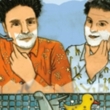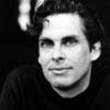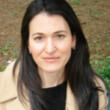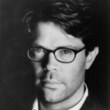Everything Is Illuminated
(Libby/OverDrive eBook)
Available Platforms
Description
More Details
Excerpt
Similar Titles From NoveList
Similar Authors From NoveList
Published Reviews
Booklist Review
It may be a pretentious title for a 24-year-old's first novel, but nearly everything about this remarkable book is illuminated. There are two plots here. The first is the story of Jonathan Safran Foer, who travels to the Ukraine hoping to find Augustine, the woman who helped save his grandmother from the Nazis. Jonathan; his Ukranian translator, Alexi (who narrates much of the novel in a hilarious broken English); Alexi's grandfather; and the family dog, Sammy Davis Junior Junior, all grow to love Augustine on their mad and hopeless search for her. The second story follows the history of one family in Trachimbrod, the shtetl for which Alexi and Jonathan are searching. Beginning in the eighteenth century with the miraculous appearance of a baby girl, Brod, the sad story of Trachimbrod culminates in the Nazi occupation of the Ukraine. Although there's plenty of lyrical acrobatics here, with exquisite magic realism intermingling with Alexi's uproarious narration, it's the emotional depth of the characters that stands out, from the 613 distinct varieties of sadness observed by young Brod to the remarkable transcontinental friendship of Alexi and Jonathan. Foer, the editor of A Convergence of Birds (2001), a collection of stories and poems inspired by Joseph Cornell's bird boxes, may be young, but he's no pretender. --John Green
Publisher's Weekly Review
What would it sound like if a foreigner wrote a novel in broken English? Foer answers this question to marvelous effect in his inspired though uneven first novel. Much of the book is narrated by Ukrainian student Alex Perchov, whose hilarious and, in their own way, pitch-perfect malapropisms flourish under the influence of a thesaurus. Alex works for his family's travel agency, which caters to Jews who want to explore their ancestral shtetls. Jonathan Safran Foer, the novel's other hero, is such a Jew an American college student looking for the Ukrainian woman who hid his grandfather from the Nazis. He, Alex, Alex's depressive grandfather and his grandfather's "seeing-eye bitch" set out to find the elusive woman. Alex's descriptions of this "very rigid search" and his accompanying letters to Jonathan are interspersed with Jonathan's own mythical history of his grandfather's shtetl. Jonathan's great-great-great-great-great-grandmother Brod is the central figure in this history, which focuses mostly on the 18th and 19th centuries. Though there are some moments of demented genius here, on the whole the historical sections are less assured. There's a whiff of kitsch in Foer's jolly cast of pompous rabbis, cuckolded usurers and sharp-tongued widows, and the tone wavers between cozy ethnic humor, heady pontification and sentimental magic-realist whimsy. Nonetheless, Foer deftly handles the intricate story-within-a-story plot, and the layers of suspense build as the shtetl hurtles toward the devastation of the 20th century while Alex and Jonathan and Grandfather close in on the object of their search. An impressive, original debut. (Apr. 16) Forecast: Eagerly awaited since an excerpt was featured in the New Yorker's 2001 "Debut Fiction" issue, Everything Is Illuminated comes reasonably close to living up to the hype. Rights have so far been sold in 12 countries, the novel is a selection of the Book-of-the-Month Club and a main selection of Traditions Book Club, and Foer will embark on an author tour expect lively sales. (c) Copyright PWxyz, LLC. All rights reserved
Library Journal Review
Young Jonathan visits the Ukraine, hoping to find the woman who saved his grandfather from the Nazis, taking along his translator Alex, Alex's grumpy grandfather as a driver, and a dog who's alternately horny and aggressive. Funny and tragic, part metafiction and part folktale, Everything Is Illuminated uses two excellent narrators to tell the overlapping stories of Jonathan's quest and the tall tales that pass for the history of Trachimbrod, his ancestral village. Jeff Woodman reads the parts written by Alex, whose hilarious mangling of English owes a great deal to thesauri (think of Saturday Night Live's "Two Wild and Crazy Guys"). Scott Shina reads the legends from Jonathan's past, which are earthy, playful, and exuberantly inventive. The characters grow and change before our eyes. Both Foer's prose and his imagination are treats; easily one of the best tapes of 2002.-John Hiett, Iowa City P.L. (c) Copyright 2010. Library Journals LLC, a wholly owned subsidiary of Media Source, Inc. No redistribution permitted.
Kirkus Book Review
Comedy and pathos are braided together with extraordinary skill in a haunting debut, a tale that depicts, with riveting intensity and originality, a young Jewish American writer's search for his family's European roots. Three stories are told therein: that of 20-year-old college student Jonathan Safran Foer's journey (in 1997) to the Ukraine in search of "Augustine," the woman rumored to have saved his grandfather from the Nazis; Jonathan's novel-in-progress, a fictional history of Trachimbrod, the Polish shtetl where his ancestors settled in the late 18th century; and letters written to Foer by his Ukrainian guide and translator Alex Perchov, an imperturbable Americanophile who boasts that he's "fluid" in English (in fact, he mangles it as memorably as Mrs. Malaprop) and blithely rearranges all his employer's plans. The seriocomic, partly surreal picture of life in Trachimbrod begins in fine magical-realist form with the story of a newborn baby who inexplicably survives when her father's wagon tumbles into the Brod River (for which she'll be named) and he drowns. Thereafter, Foer keeps the reader both hooked and pleasingly disoriented, as the narrative careens between Jonathan's sedulous exploration of "the dream that we are our fathers" and Alex's ingenuous accounts of their travels, undertaken in the company of his bilious Grandfather and an amorous canine bitch called Sammy Davis, Junior, Junior. The aged Augustine is (or perhaps is not) found, horrific tales of Nazi atrocities and of a bitter legacy of apostasy, betrayal, and guilt gradually unfold-and "illumination"-is ironically achieved, as these several stories fuse together. Summary would mislead, as interlocking revelations are the story's core: suffice it to say that at its overpowering climax, the river where it all began "speaks"-before another voice adds an even more passionate, plaintive coda. Beauty from ashes. And a vibrant response to Jonathan's grim aphorism "The novel is the art form that burns most easily." Not this novel. First serial to the New Yorker, where Foer was featured as a 2001 Debut Fiction Writer; author tour
Booklist Reviews
It may be a pretentious title for a 24-year-old's first novel, but nearly everything about this remarkable book is illuminated. There are two plots here. The first is the story of Jonathan Safran Foer, who travels to the Ukraine hoping to find Augustine, the woman who helped save his grandmother from the Nazis. Jonathan; his Ukranian translator, Alexi (who narrates much of the novel in a hilarious broken English); Alexi's grandfather; and the family dog, Sammy Davis Junior Junior, all grow to love Augustine on their mad and hopeless search for her. The second story follows the history of one family in Trachimbrod, the shtetl for which Alexi and Jonathan are searching. Beginning in the eighteenth century with the miraculous appearance of a baby girl, Brod, the sad story of Trachimbrod culminates in the Nazi occupation of the Ukraine. Although there's plenty of lyrical acrobatics here, with exquisite magic realism intermingling with Alexi's uproarious narration, it's the emotional depth of the characters that stands out, from the 613 distinct varieties of sadness observed by young Brod to the remarkable transcontinental friendship of Alexi and Jonathan. Foer, the editor of A Convergence of Birds (2001), a collection of stories and poems inspired by Joseph Cornell's bird boxes, may be young, but he's no pretender. ((Reviewed March 1, 2002)) Copyright 2002 Booklist Reviews
Library Journal Reviews
This highly imaginative debut novel features a protagonist with the same name as the author. The fictional Jonathan Safran Foer, also a writer, travels to Eastern Europe after his junior year in college. His mission, as he ventures through the farmlands, is to find Augustine, who may have saved the grandfather he never knew from the Nazis. Accompanying Jonathan on his quixotic quest is Alex, a young Ukrainian translator who speaks hilariously fractured English. The fabled history of his grandfather's shtetl, or village, is juxtaposed with events in the present using comedy interspersed with tragedy. Generations become united across time in this fanciful tale, as Foer, the author, gives the reader a contemporary version of 19th-century Jewish drama one that blends laughter and tears. Recommended for all libraries. Molly Abramowitz, Silver Spring, MD Copyright 2001 Cahners Business Information.
Publishers Weekly Reviews
What would it sound like if a foreigner wrote a novel in broken English? Foer answers this question to marvelous effect in his inspired though uneven first novel. Much of the book is narrated by Ukrainian student Alex Perchov, whose hilarious and, in their own way, pitch-perfect malapropisms flourish under the influence of a thesaurus. Alex works for his family's travel agency, which caters to Jews who want to explore their ancestral shtetls. Jonathan Safran Foer, the novel's other hero, is such a Jew an American college student looking for the Ukrainian woman who hid his grandfather from the Nazis. He, Alex, Alex's depressive grandfather and his grandfather's "seeing-eye bitch" set out to find the elusive woman. Alex's descriptions of this "very rigid search" and his accompanying letters to Jonathan are interspersed with Jonathan's own mythical history of his grandfather's shtetl. Jonathan's great-great-great-great-great-grandmother Brod is the central figure in this history, which focuses mostly on the 18th and 19th centuries. Though there are some moments of demented genius here, on the whole the historical sections are less assured. There's a whiff of kitsch in Foer's jolly cast of pompous rabbis, cuckolded usurers and sharp-tongued widows, and the tone wavers between cozy ethnic humor, heady pontification and sentimental magic-realist whimsy. Nonetheless, Foer deftly handles the intricate story-within-a-story plot, and the layers of suspense build as the shtetl hurtles toward the devastation of the 20th century while Alex and Jonathan and Grandfather close in on the object of their search. An impressive, original debut. (Apr. 16) Forecast: Eagerly awaited since an excerpt was featured in the New Yorker's 2001 "Debut Fiction" issue, Everything Is Illuminated comes reasonably close to living up to the hype. Rights have so far been sold in 12 countries, the novel is a selection of the Book-of-the-Month Club and a main selection of Traditions Book Club, and Foer will embark on an author tour expect lively sales. Copyright 2001 Cahners Business Information.
Reviews from GoodReads
Citations
Foer, J. S. (2013). Everything Is Illuminated . HarperCollins.
Chicago / Turabian - Author Date Citation, 17th Edition (style guide)Foer, Jonathan Safran. 2013. Everything Is Illuminated. HarperCollins.
Chicago / Turabian - Humanities (Notes and Bibliography) Citation, 17th Edition (style guide)Foer, Jonathan Safran. Everything Is Illuminated HarperCollins, 2013.
Harvard Citation (style guide)Foer, J. S. (2013). Everything is illuminated. HarperCollins.
MLA Citation, 9th Edition (style guide)Foer, Jonathan Safran. Everything Is Illuminated HarperCollins, 2013.
Copy Details
| Collection | Owned | Available | Number of Holds |
|---|---|---|---|
| Libby | 2 | 0 | 0 |




































